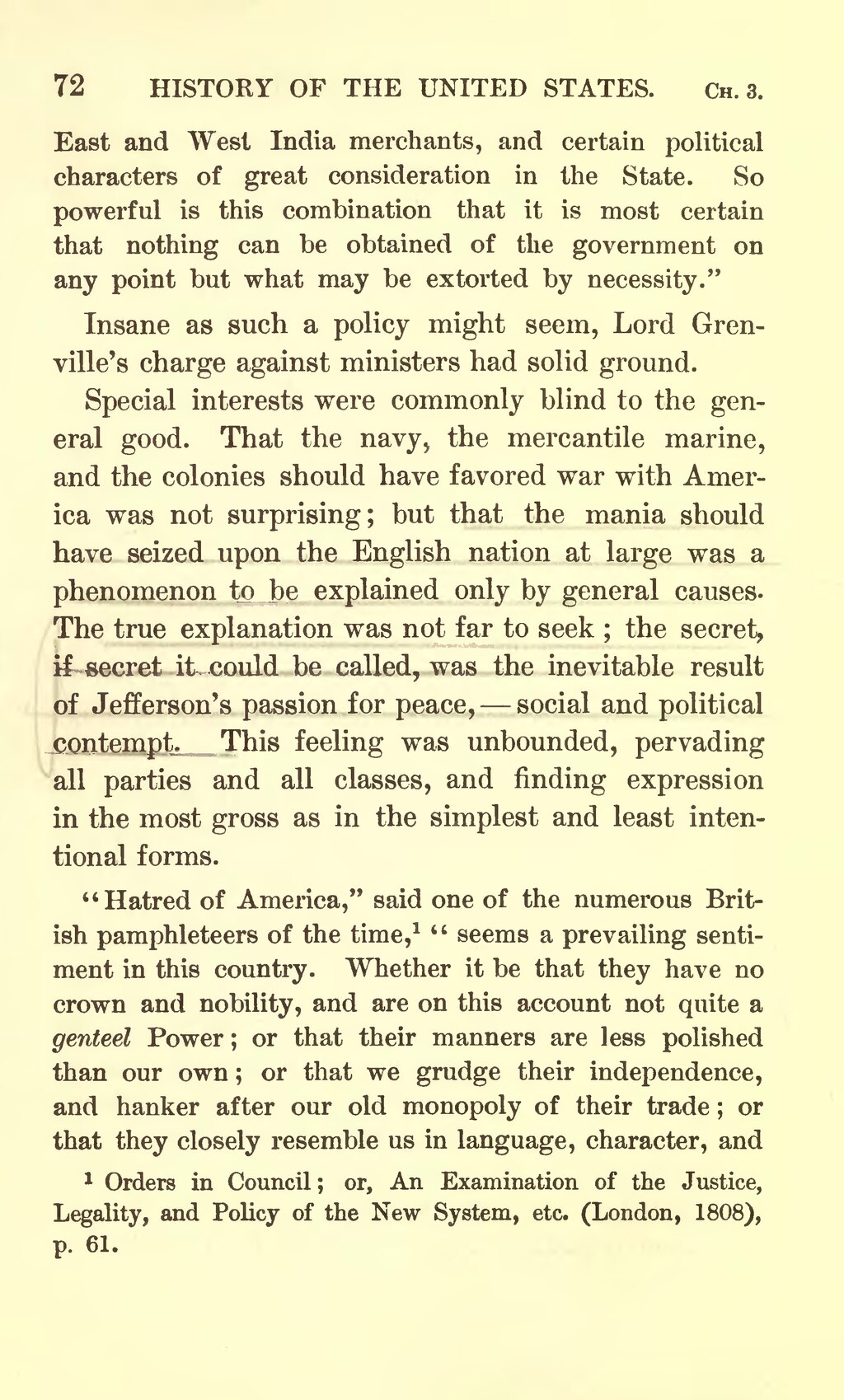East and West India merchants, and certain political characters of great consideration in the State. So powerful is this combination that it is most certain that nothing can be obtained of the government on any point but what may be extorted by necessity."
Insane as such, a policy might seem, Lord Grenville's charge against ministers had solid ground.
Special interests were commonly blind to the general good. That the navy, the mercantile marine, and the colonies should have favored war with America was not surprising; but that the mania should have seized upon the English nation at large was a phenomenon to be explained only by general causes. The true explanation was not far to seek; the secret, if secret it could be called, was the inevitable result of Jefferson's passion for peace,—social and political contempt. This feeling was unbounded, pervading all parties and all classes, and finding expression in the most gross as in the simplest and least intentional forms.
- "Hatred of America," said one of the numerous British pamphleteers of the time,[1] "seems a prevailing sentiment in this country. Whether it be that they have no crown and nobility, and are on this account not quite a genteel Power; or that their manners are less polished than our own; or that we grudge their independence, and hanker after our old monopoly of their trade; or that they closely resemble us in language, character, and
